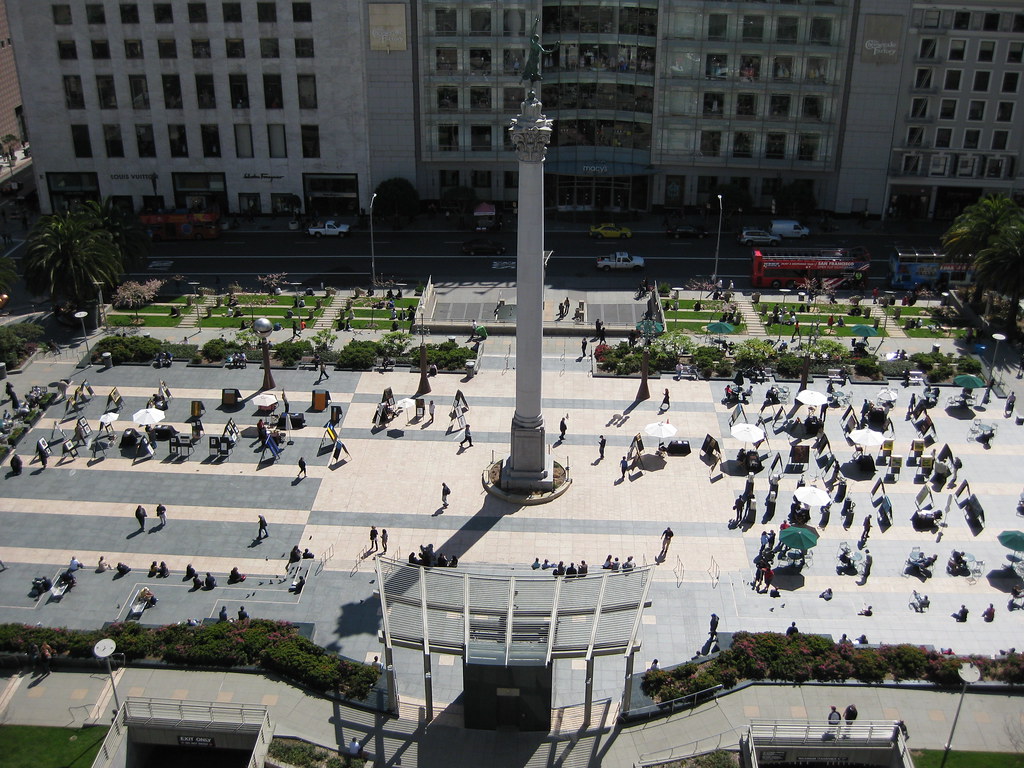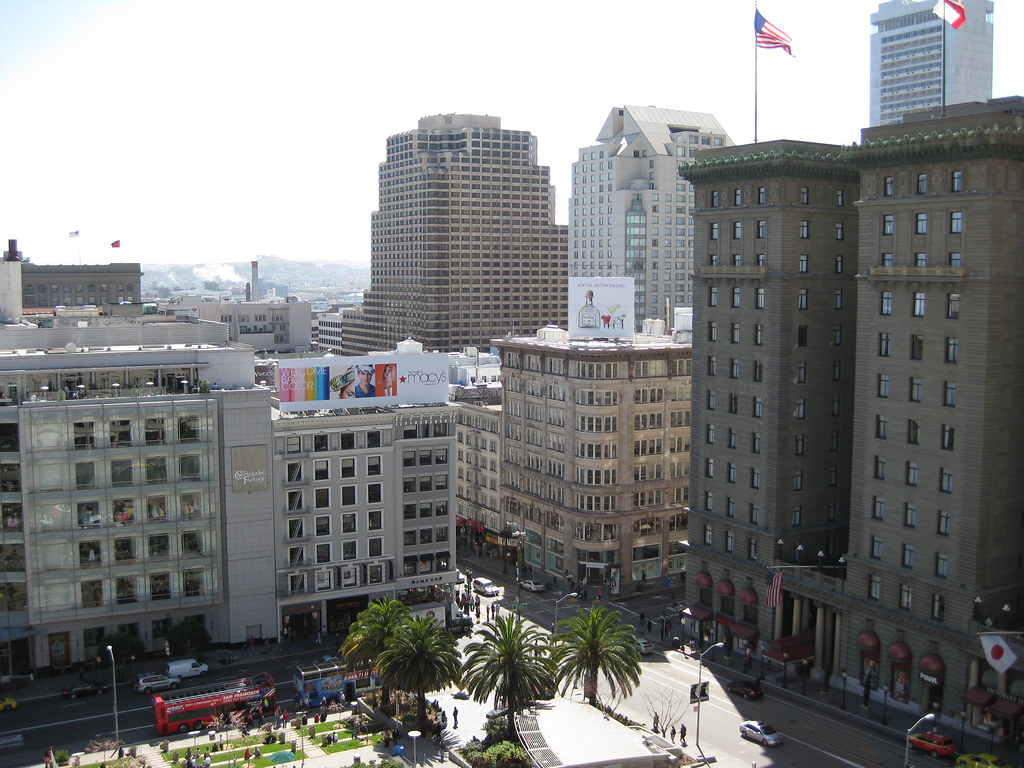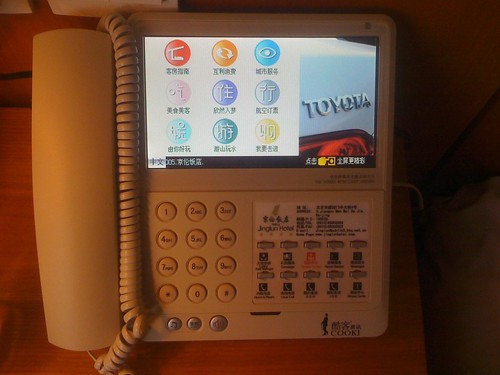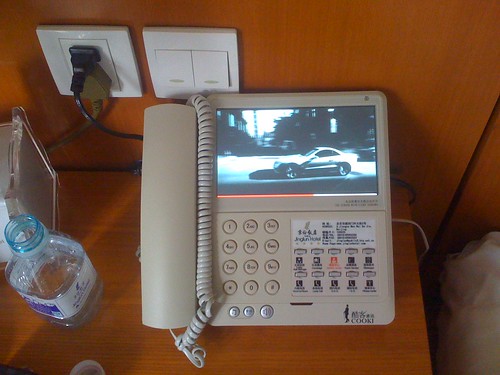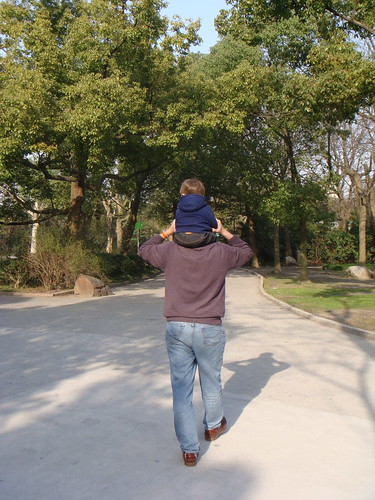After using Twitter for almost two years on a daily basis I literally could not live without it anymore. It has changed the way I do things and it has enabled me to get to know (and meet in real life) many interesting people. It had a positive impact on my life and on my work. People who don’t use it don’t know what they are missing, and the problem is that it’s hard to explain. I have tried it many times, but you have to start using it intensively for a while to really understand it, and that’s what most people will not do. That’s fine with me, as long as they don’t bad mouth the service as being irrelevant and a time waster, as has happened often in Dutch media recently. Most journalists do not seem to understand the value of the service yet, that may even be a potential threat to their business.
Do you know what is the first thing I do in the morning when I turn on my computer? Not looking at my email, not looking at my RSS feeds, but looking at the latest trends on search.twitter.com. That’s where you see what’s happening at that very moment all over the world. That’s where you read the news before it appears on blogs and on Google News and (much later) in newspapers. Then I look at my Twitter replies and only after that I open my RSS feeds and my email.
During the day I check Twitter a couple of times. I don’t read everything, which is impossible if you follow a few hundred people, but just jump into it and read few pages back to see if there are any interesting conversations going on. If so I might jump in for a few minutes, and if not I continue with what I’m doing. I do read all my replies and always have the search screen open for my Twitter name, for Spil Games and for Tudou. So anything that gets written that’s relevant to me I will see.
The things I write on Twitter depend a bit on my mood and on what I’m doing. Normally they are just some random thoughts or things that I am doing, often while driving to a meeting or while waiting somewhere. Things that may be interesting for others, but also things that may seem useless at first. However, I have learned that even seemingly useless messages become interesting if you follow people for a longer time. You really get to know them, and I think I know more about many of my Twitter friends than about some of my real life friends.
Twitter is also a good tool to quickly get information. Last week for example I took a cab from SFO airport to downtown and a few minutes before we arrived at my hotel I realized that I did not know how much to tip a SF cab driver. I tweeted that and within minutes I had at least 10 people answering me. Today I realized that I spend about USD 500/year on fees for my main credit card because of a 1.5% fee on non-EUR transactions, and I asked my Twitter followers for advice. I got some interesting replies, both on Twitter and through DM, and I will check out some of these options. Sure, I could have done a Google search, but not only is this Twitter easier, it is also more personal. I know or can easily get to know the person who replies me. Social recommendations are more valuable than ads or (relatively) objective Wikipedia information.
Most important, however, are the people I get to meet through Twitter. Last week I twittered a lot about what I was doing at the GDC in San Francisco. Because of that I got to know at least 4 interesting people (entrepreneurs, investors and people from gaming companies) and found a lot of new followers who were also attending GDC. With two of the people that I met through Twitter last week I discussed about entrepreneurship in the Valley and I learned a lot from them. Without Twitter I would not have had these conversations.
Twitter is a new way of how to deal with real time information. I did not have a lot of time to go to the GDC presentations, but I was still able to read about the main things that were going on by doing a search on the hashtag #gdc or #gdc09 in Twitter. Real time information about what was being said. For me it’s not only useful, but it’s also fun. Twitter is a social tool to get to know or keep in touch with people and to keep track of information. As I mentioned in the first paragraph it has changed the way I work. Of course Twitter costs time. I estimate that I spend at least 30 minutes per day on Twitter. Combined with another 30 minutes on my blog and about 30 min-1 hour on my RSS newsfeeds, that means 2 hours per day spent on online and social media. Is that a lot? Depends on how you see it. In these 2 hours I get all the information I need, and it’s exactly the information I want to have. I hardly ever read newspapers: I scan through the Shanghai Daily in 5 minutes and download, but often not even read anymore, my daily Dutch newspaper on my ebook reader. And I hardly ever watch TV. I get my information online, not from talking heads on a TV screen. Not spending time on these two media saves me a lot more than 2 hours per day.
For me Twitter is here to stay. The way I use it may change now that more people are on it (in 2007 I used it very differently from now: I read everything my friends said, but at that time there were just a handful users) and when new Twitter services and appliances become available. But I think it will be increasingly useful and a real productivity tool instead of a time waster. If you’ve read until the end and are not a Twitter user yet I hope I have convinced you to give it a try. Just go to http://twitter.com and sign up! And don’t forget to add me.



